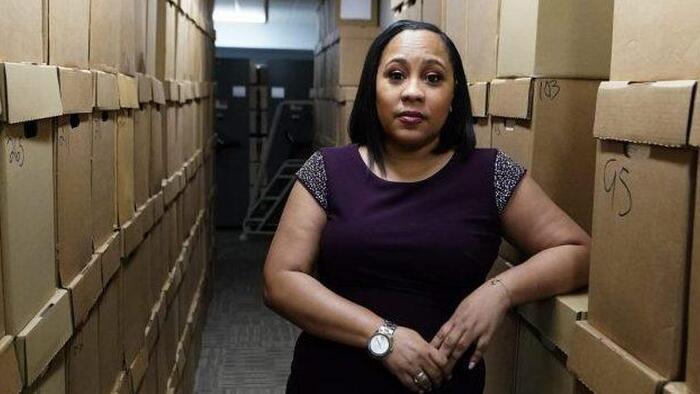Fulton County District Attorney Fani Willis has requested the Georgia Court of Appeals to restore six racketeering charges against former President Donald Trump, which had previously been dismissed by Superior Court Judge Scott McAfee. The charges stem from allegations that Trump solicited Georgia legislative leaders, specifically House Speaker David Ralston and Secretary of State Brad Raffensperger, to alter the outcomes of the 2020 presidential election. Alongside Trump, similar solicitation charges were brought against his former attorney Rudy Giuliani and former chief of staff Mark Meadows. Judge McAfee’s decision to dismiss the charges focused on the assertion that the defendants had not received enough details to adequately defend themselves, raising questions about the sufficiency of the legal groundwork established for these counts.
In addition to the solicitation charges, McAfee dismissed three other counts against Trump, ruling that they were outside Willis’s jurisdiction. In her recent court filing, Willis contended that McAfee “erred” in his decision and argued that the state is not obligated to provide extensive details about alleged violations of an oath by public officers when it comes to solicitation charges. She emphasized that the lack of specifics regarding the target crime does not diminish the weight of the solicitation allegation itself. This highlights a critical legal debate about what constitutes adequate detail in charges that stem from complex election-related activities.
Despite Willis’s efforts to have the charges reinstated, Trump’s legal counsel, led by attorney Steve Sadow, has dismissed her claims as legally flawed. This back-and-forth in the courts indicates ongoing tensions between Willis’s office and Trump’s legal team, reflecting broader divisions over accountability in the context of serious election integrity issues. As the appeals process unfolds, the legal justification for both parties’ positions will be scrutinized, potentially leading to clarifications on the standards of detail needed for solicitation charges.
Further complicating matters, the progress of Willis’s case has been stalled since June, awaiting a decision on whether she will be disqualified from the prosecution due to her relationship with Nathan Wade, a special prosecutor involved in the case. The concern is that this relationship may pose a conflict of interest, which could undermine the case’s credibility. Wade recently testified before the House Judiciary Committee, claiming that the prosecution against Trump was devoid of political motivations and asserting his actions did not compromise the case’s integrity. Nevertheless, this situation adds a layer of complexity to the legal proceedings, as the court assesses the implications of personal relationships within high-stakes legal contexts.
The oral arguments regarding Willis’s ability to continue the case are scheduled for December 5, creating an impending deadline that could significantly impact the trajectory of the prosecution. The outcome of these hearings could either bring clarity to the status of the allegations against Trump or further entrench the ongoing legal battles surrounding the former president and his associates. The stakes are high, as the implications of these charges resonate not only within Georgia but also have national significance due to Trump’s prominent role in politics and the continuing discussions about election integrity.
This legal entanglement reflects broader societal tensions surrounding the aftermath of the 2020 election and its impact on American governance. Willis’s actions and the charges brought forth underscore the importance of accountability for public officials’ conduct, particularly in the realm of election administration. In a landscape that often feels deeply polarized, the courts serve as a crucial battleground for these contentious issues, with the outcomes potentially shaping future legal precedents and political discourse across the nation. As both sides prepare for the upcoming court dates, the unfolding narrative around election integrity, legal responsibility, and political accountability continues to take center stage.

